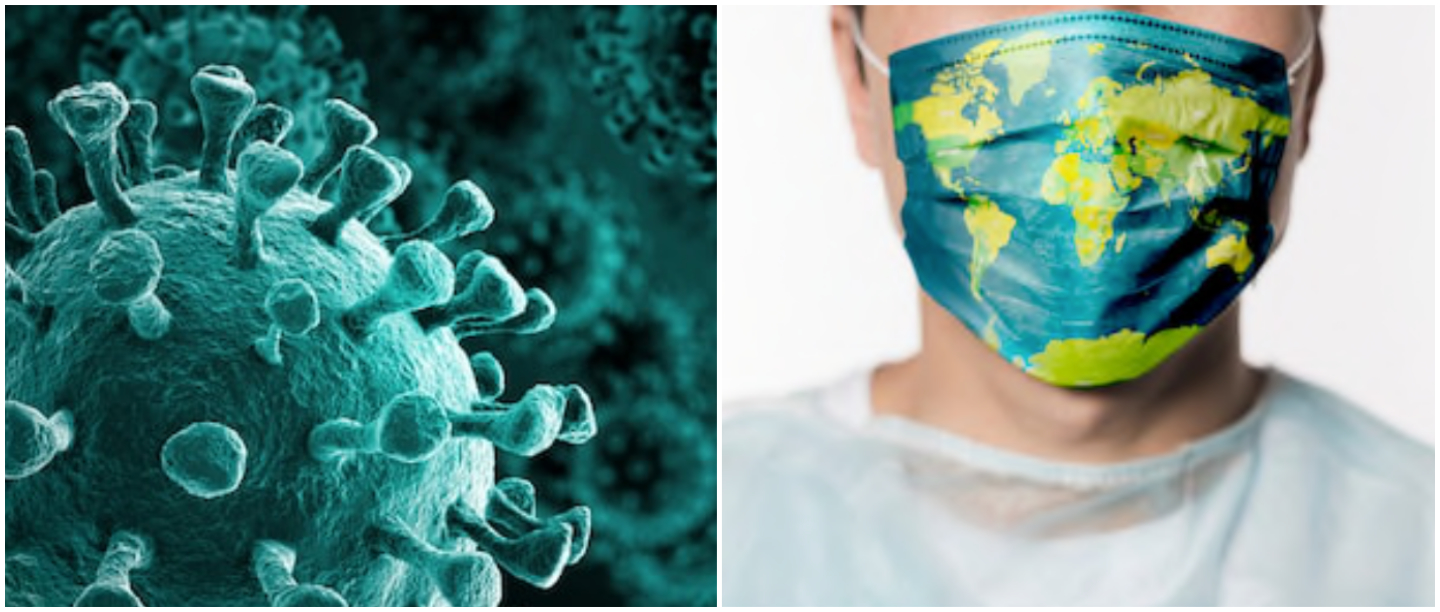
COVID-19 has infected over 14,84,800 people globally and the death toll across the world has jumped up to an alarming 88,538. In India, the number of active coronavirus cases has surged up to 5,095 and the virus has claimed 166 lives despite being under a 21-day lockdown. Pharmaceutical firms and research groups all over the world are working on vaccine for COVID-19 as it continues to spread rapidly.
Researches and studies are being conducted across the world to understand the novel coronavirus. A recent study by the Indian Council Of Medical Research (ICMR) has found that a COVID-19 patient can infect 406 other people in a span of 30 days if preventive measures such as lockdown and social distancing are ignored and not implemented.
The Union Health Ministry, on the other hand, specified that if preventive measures are cautiously taken then the possibility of spread of the virus can be reduced to an average of two and a half persons per patient in a month.
Here’s a graphical representation of the current situation:
Referring to the study conducted by ICMR, Joint Secretary in the Ministry of Health, Lav Agarwal explained what ‘R0’ or ‘R naught’ or the current basic reproduction number means and why one must understand its importance. “The ‘R0’ for the novel coronavirus is somewhere between 1.5 and 4. It is a mathematical term that indicates how contagious an infectious the disease is. It tells us the average number of people who will catch a disease from one infected person. If we take the ‘R0’ to be 2.5, then one positive person can infect 406 people in 30 days if the lockdown and social distancing measures are not in place,” Agarwal said. The only way to stop the rapid spread, therefore, is to adopt social distancing as a way of life at the moment. Given the circumstances, various hotspots in Delhi and Uttar Pradesh have been sealed.
Speaking about the healthcare measures being taken by the govt currently, the Joint Secretary said that the hospitals and facilities for the management of COVID-19 patients have been classified into three categories. These are as follows:
1. Mild and suspected cases: Patients falling in this category will be kept in Dedicated COVID Care Centres. For example, makeshift facilities or government or private facilities like schools, hostels, stadiums, hotels among others.
2. Clinically moderate level of serious patients: Patients under this category will be treated at Dedicated COVID Health Centres. These facilities can be a full hospital or dedicated block in a hospital.
3. Severe and critical cases: Patients who are extremely serious will be treated at dedicated COVID Hospitals which would have fully equipped ICU facilities, ventilators and beds with oxygen support.
The coronavirus threat is still looming large on us and that is why the Centre is looking at extending the lockdown beyond April 14. Social distancing and staying indoors is the first line of defence to cope with the COVID-19 pandemic. So we, as able human beings, should take this more seriously. After all, we’re all in this together.
Featured Image: Twitter
Learn a whole new set of skills without stepping out of your home. Join our talented set of hosts on #POPxoLive and you’re all set. Download the POPxo App and get ready to take it up a pop!